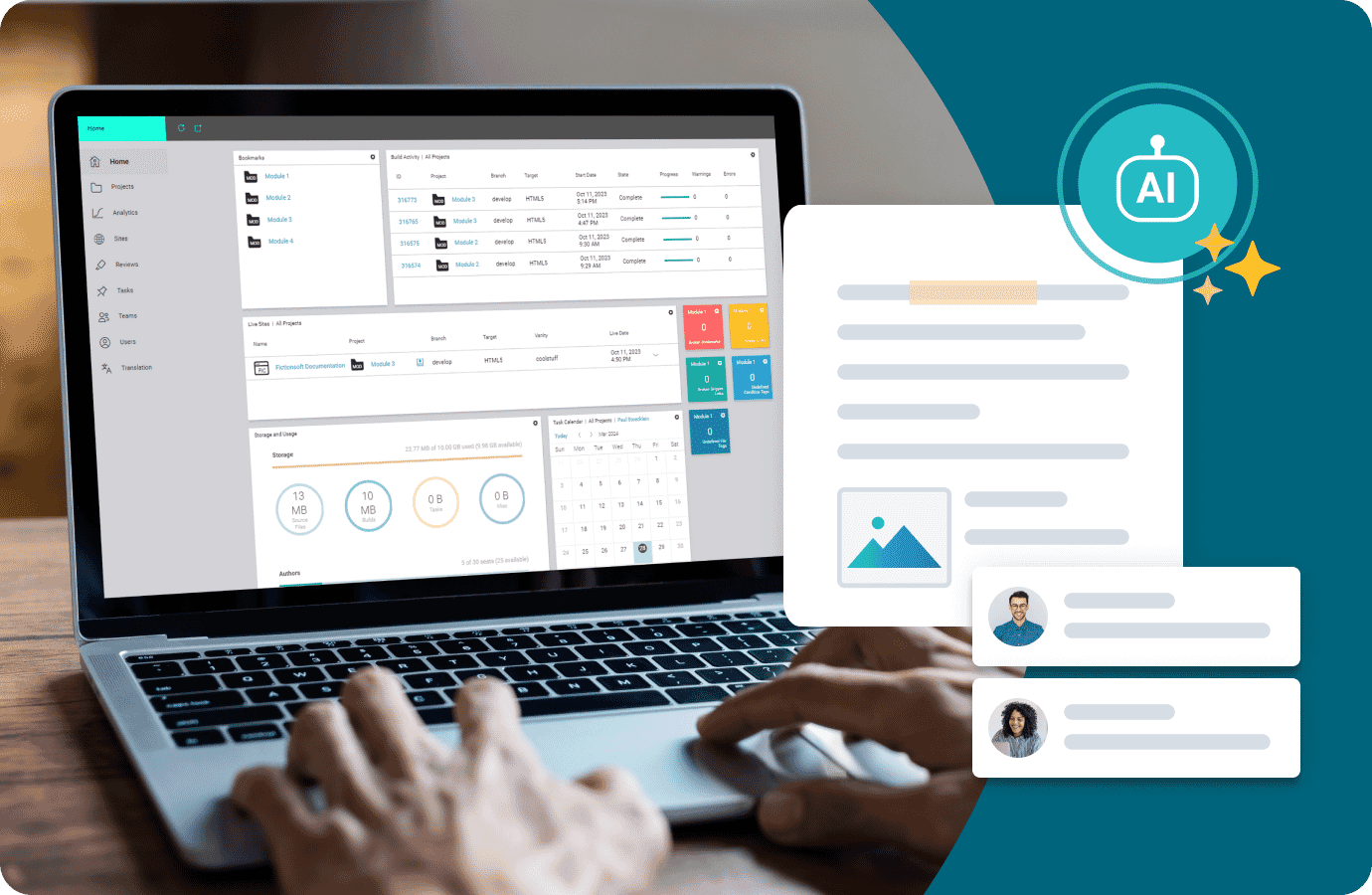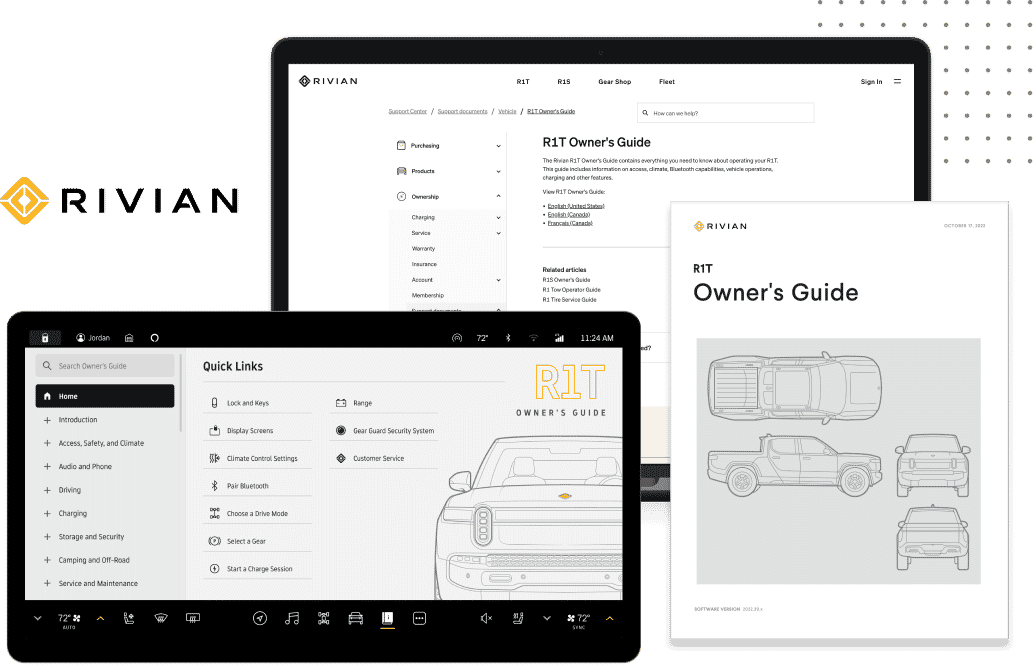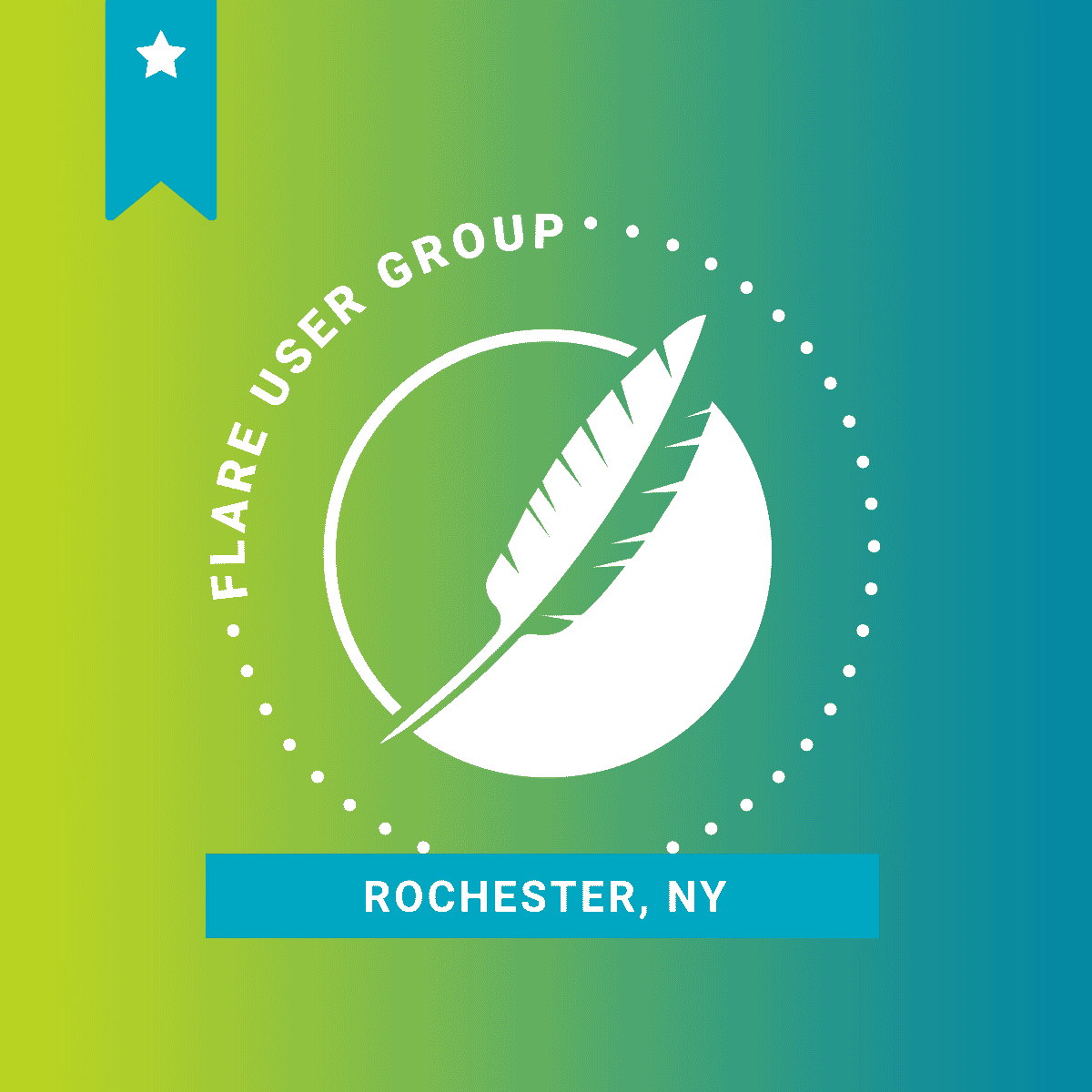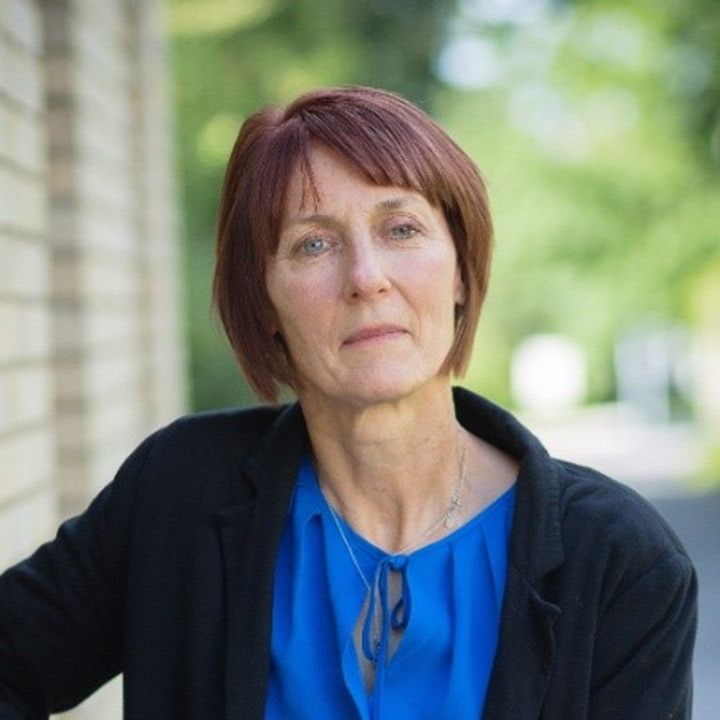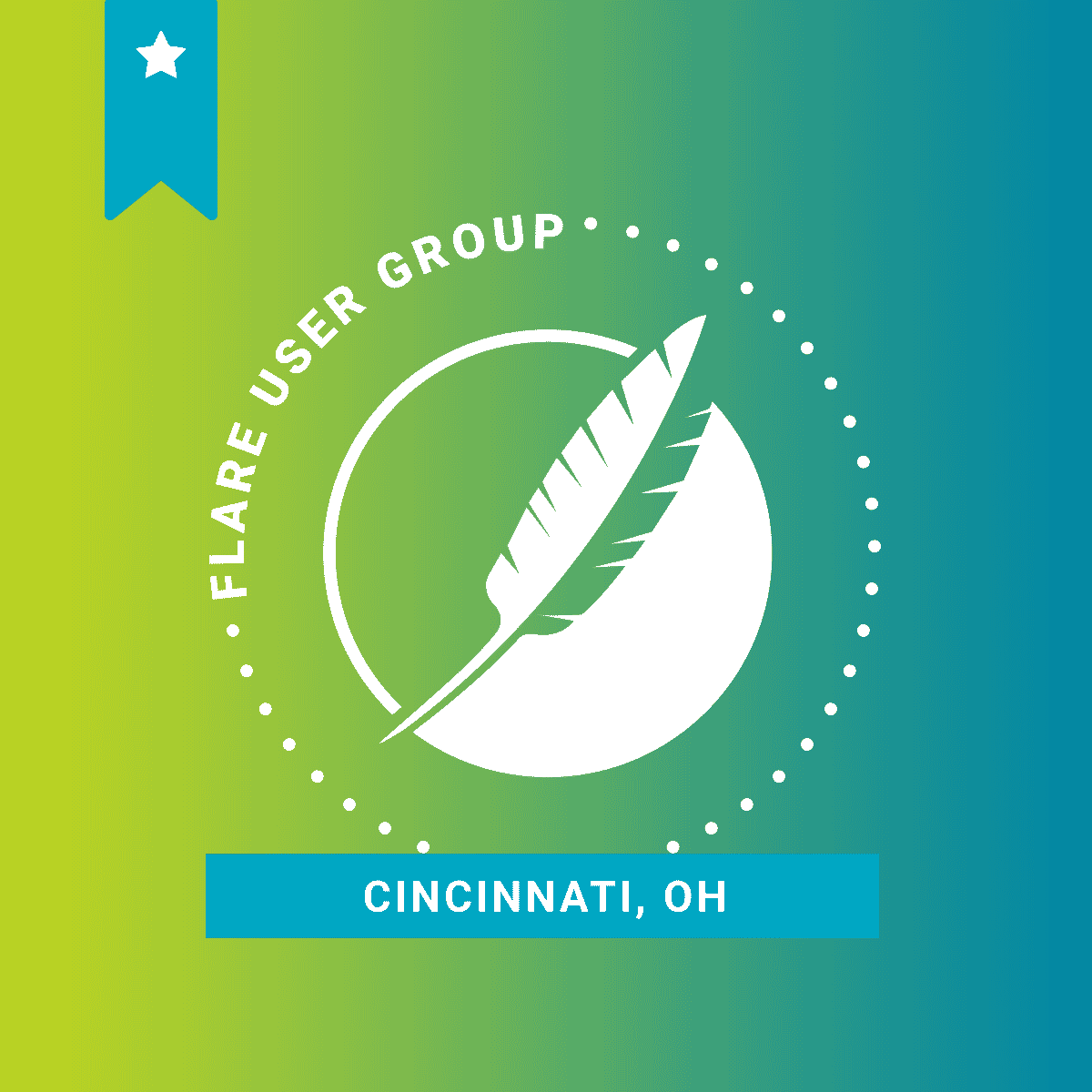MadCap Flare User Groups bring together local technical writers and Flare users through their shared interest in using Flare. The very first MadCap Flare user group, the Rochester Flare User Group (RFUG), celebrates its 10th anniversary in March 2019. In this next post in our community spotlight series, founding member Ann Pillman takes a look back at how the group started, and Hendrik van Edig discusses his experiences as a recent member.
Why Attend a Flare User Group?
Ann Pillman: In 2009, I got an email from Nita Beck, inviting several Flare users in the Rochester NY area to a “user group” meeting to get to know each other and talk shop about how we’re using Flare in our work. I thought to myself, “Wow, this sounds geeky. I left a career as a software engineer precisely because I was tired of geeky. Do I really want to use my limited free time to meet with people to talk about … essentially, work?”
What pulled me into this initial meeting was a desire for interaction with other professionals in my industry, specifically, people who were using the same authoring tool as I was. As a work-at-home self-employed writer and consultant, I didn’t have colleagues to hash over thorny writing or design challenges, or to trade MadCap Flare tips or best practices.
Our local Society of Technical Communication (STC) chapter was strong and vibrant, and while I occasionally attended their meetings for the professional networking, it was rare that any of the monthly program topics were specifically applicable to the work I was doing day-in and day-out with Flare. As such, Nita’s idea for a user group dedicated to Flare was intriguing, despite the potential geek factor.
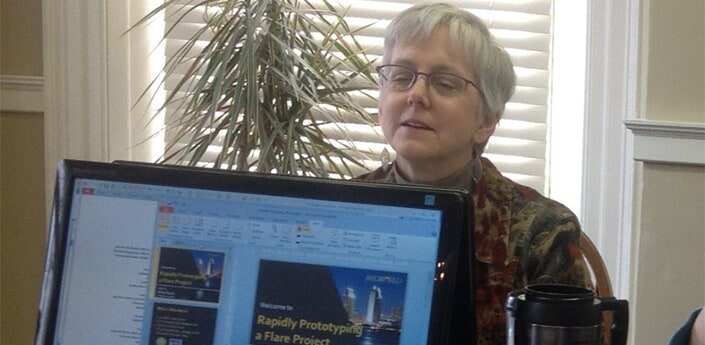
Nita Beck presenting an in-depth topic at RFUG’s March 16, 2013 meeting
The Early Years of the User Group: Monthly Meetings, Agendas, and Meeting Notes
Our early years as a user group were structured, yet always had a sense of fun and camaraderie. In our monthly meetings (with summers off), a member (usually Nita) typically prepared a written agenda in advance and solicited others to contribute either a short “Tip or Trick” or to present a longer topic. We took meeting notes, and whoever prepared a longer topic also brought a write-up to distribute.
Hearty Hellos and Around-The-Table Check-In
We started each meeting with “hearty hellos” and an around-the-table check-in during which members each gave a quick, 2-3 minute report of what they’d been doing lately with Flare. Many times, this generated ideas for future meeting topics, as someone would describe what they were currently up to with Flare, and others would say, “Wow, I’d love to know more about that!” Nita would promptly ask that person to prepare something on that topic for a future meeting.
Varied Meeting Times, Durations, and Locations
We tried to alternate shorter evening meetings during the week, with occasional longer sessions on Saturdays. Billed as “Saturday Sandbox” sessions, these meetings gave us the opportunity to dive into a particular topic. For these longer meetings, we needed to arrange meeting space with enough room to spread out and set up laptops and a borrowed projector. For the shorter after-work meetings, we often met at a local Panera restaurant to enjoy Flare shop talk over dinner.
Our Takeaways From Meetings
Our members have different areas of expertise with Flare, so everyone had unique skills and information to share. We always came out of each meeting having learned a lot, and many times walked away with a specific idea or concept that we could apply to our current work project.
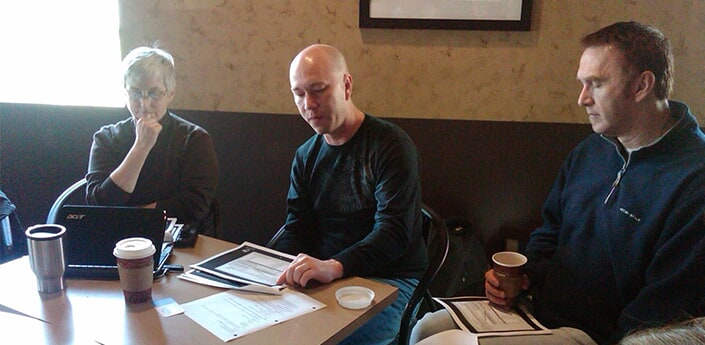
MadCap’s Paul Stoecklein (in town for an STC conference) presenting at RFUG’s April 10, 2010 meeting
Challenges and Suggestions
Communication: Keeping in Touch
One of the big challenges RFUG faced was how to reach potential members and keep in touch with existing members. Over the years, we tried Google Groups, Facebook, LinkedIn, and perhaps a few other tools as well. Currently, we use the Rochester_NY channel of the MadCap Flare User Groups Slack group to coordinate our meetings. We do the best we can to communicate meeting dates in a timely fashion and accommodate various schedules, but we’re aware that not everyone can make it to every meeting.
Logistics: Finding a Suitable Meeting Space
It wasn’t always easy to find a suitable meeting space. The Panera restaurant where we often met for shorter meetings was free, but noisy and crowded, and not an ideal environment for setting up computers for more in-depth presentations. For several Saturday Sandbox sessions, we were able to meet at a local bagel eatery that had a large meeting room for rent for a nominal fee. One time we met in the community room of a local library, and for a while, we had the free use of a meeting room at a local business for Saturday meetings. Flexibility and creativity were key in finding the right space.
We also experimented with virtual (online) meetings with other user groups, with varying degrees of success due to technological challenges. Still, these online meetings had the advantage of opening up the attendance to those in diverse geographic areas. In a past meeting, Swapnil Ogale from Melbourne, Australia joined us online, at 2 AM his time. Now that’s dedication! But, as wonderful as online meetings can be, they really don’t replace the face-to-face connection with other Flare authors in your own community.
Relevance: Making Meetings Accessible for All Skill Levels
We recognized early on – and still try to achieve – the importance of making our meetings relevant to new Flare users. Our initial membership consisted of fairly skilled Flare authors. Our “Tips and Tricks” and in-depth topic presentations then (and even still now) could be too complicated for those who didn’t have our long-term members’ experience with Flare. We learned to slow down the pace of discussion and to explain concepts so beginner users could follow discussions and demos. We were always excited to meet new Flare authors, so it was important to not scare them away with too much in-depth tech talk.
Membership: Small Potential Membership Pool for In-Person Meetings
Rochester is a small community, and the pool of tech writers using Flare seems to be pretty modest. Some of our founding user group members transitioned to different jobs where they are no longer using Flare. Some retired. Some moved away. But every year there seems to be one or two new Flare users who come to at least a few meetings, so that keeps us going!
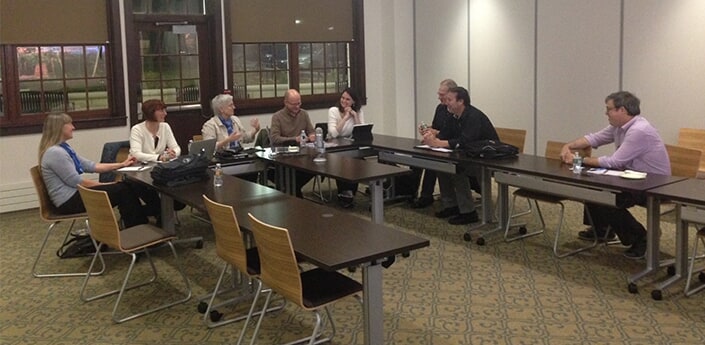
MadCap’s Anthony Olivier (second from right) and Mike McDermott (behind the camera) at RFUG’s November 4, 2015 meeting
The Rochester Flare User Group Today, From a New Member’s Perspective

Hendrik van Edig, a technical translator by training, has lived and worked in Germany, England, Ireland and the U.S. He has crossed the bridge between translating and authoring several times and currently works as a project manager for a translation company in Rochester, NY.
Hendrik joined RFUG in 2013 as a new Flare user. When asked why he joined, Hendrik says “my approach at the time was to learn how to use Flare as quickly as possible through full immersion. In order ‘to tame the beast’, I felt a mix of autodidactic learning, MadCap training, and an informal exchange with colleagues would do the trick. For the latter, RFUG was the ideal platform.”
“In hindsight, I am very thankful for the moral support RFUG offered. Especially for a 'lone writer', the meetings often proved to be a godsend.”
Now, as it approaches its 10th anniversary in March, the Rochester Flare User Group has mellowed into a relaxed forum for continuing education. We exchange ideas and discuss new or hidden Flare features, or we solve small problems together. Sometimes, however, we just socialize, share news, and talk shop over a cup of coffee.
Why We’re Still Going, Ten Years Later
Nita summed it up at our most recent meeting by saying she is a firm believer in the power of the “hive brain” and in learning that happens organically. And that’s exactly what we continue to do at the Rochester Flare User Group—we share and learn, no matter if there’s only two or three of us or a whole roomful of people.
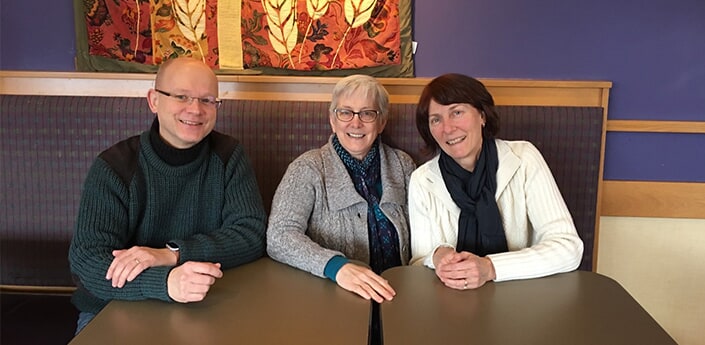
Henrik van Edig, Nita Beck, and Ann Pillman at RFUG’s January 12, 2019 meeting – still learning and having fun!
